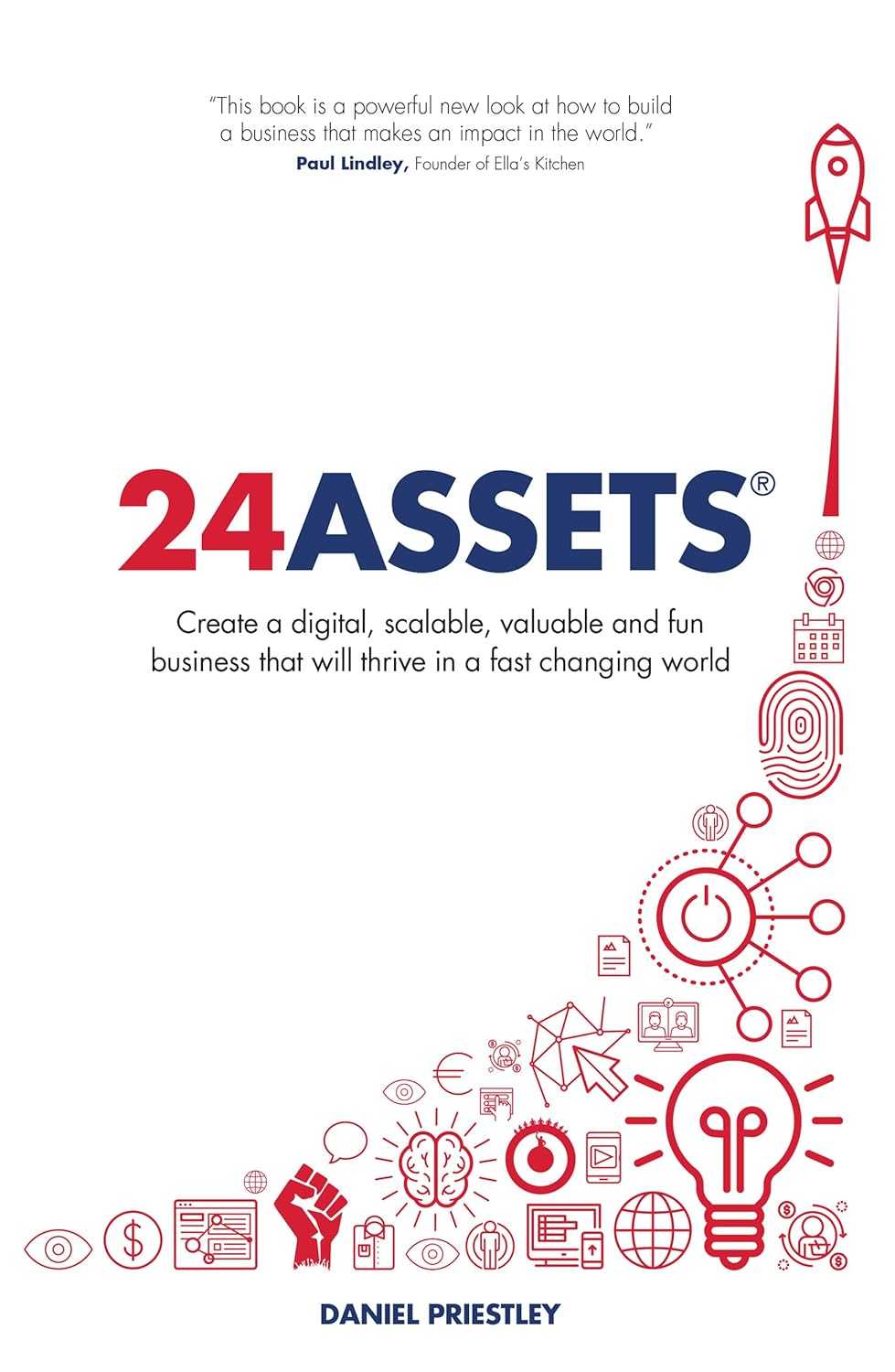Build Assets Not Tools
For entrepreneurs looking to build a digital, scalable, valuable, and fun business, 24 Assets by Daniel Priestley offers a comprehensive roadmap to thrive in our rapidly changing business world. This book has garnered attention since its release in 2017 for its focus on the creation and management of assets as opposed to mere operational tools, highlighting an essential shift from a transactional business model to a transformational business model that builds value over time.
The concept of "24 Assets" revolves around the idea that successful businesses need more than great products or services; they need robust systems, a compelling brand, and intellectual property, among others. Priestley categorizes these into seven groups:
- Intellectual Property
- Brand
- Market
- Product
- System
- Culture
- Funding Assets
Each category contains several specific assets critical to business success, making up the titular 24 assets.
Intellectual Property Assets
Intellectual Property Assets include unique content, methodologies, and registered trademarks that distinguish a business from its competitors. These are foundational for creating a brand's distinct voice and for securing a legally defensible competitive advantage.
Brand Assets
Brand Assets are about building a recognizable identity that resonates emotionally with customers. This includes developing a brand philosophy, visual identity, and brand ambassadors who can evangelize the company's products and services.
Market Assets
Market Assets refer to channels, data, and positioning that allow a business to reach its target audience effectively and efficiently. These assets are crucial for scaling operations without proportionately increasing marketing costs.
Product Assets
Product Assets involve developing offerings that meet customer needs in unique and compelling ways, making them difficult for competitors to replicate. These might include flagship products, complementary goods, and digital offerings that enhance customer engagement.
System Assets
System Assets are perhaps some of the most crucial, as they pertain to the processes and infrastructures that allow a business to operate smoothly without constant owner oversight. This includes automations, standard operating procedures, and tech stacks that ensure consistency and efficiency.
Culture Assets
Culture Assets highlight the importance of human capital in business success. They encompass strategies to attract, retain, and develop talented individuals who are aligned with the business’s goals and culture. This is vital for fostering innovation and maintaining operational quality.
Funding Assets
Funding Assets cover aspects related to financial health and access to capital. This includes maintaining a sound business plan, financial forecasts, and relationships with investors and lenders.
Priestley's book goes beyond listing assets by providing actionable advice on how to develop each one within the context of a growing business. He integrates case studies and anecdotes to illustrate how these assets have been successfully implemented by various businesses. Maybe you would find some information here to fill a gap as you build your business. Additionally, the book emphasizes the importance of asset interconnectivity; how each asset influences and enhances the others, which is valuable to startup founders and established business owners alike.
The book challenges traditional business thinking that often prioritizes immediate profits over long-term asset development. Priestley suggests that focusing on assets can lead to more sustainable growth and a robust business model capable of withstanding economic fluctuations and changes in market dynamics.
24 Assets is not just a theoretical manual; it offers practical steps and checks for entrepreneurs to apply right away. Whether you're just starting out or looking to pivot your business model, Priestley provides a blueprint for what a modern business should look like.
Overall, Daniel Priestley's 24 Assets is a crucial read for any entrepreneur looking to build a business that lasts. It’s a call to shift from short-term gains to long-term value creation, making it a highly recommended book for anyone in the entrepreneurial ecosystem who aspires to create a scalable and sustainable business model.

